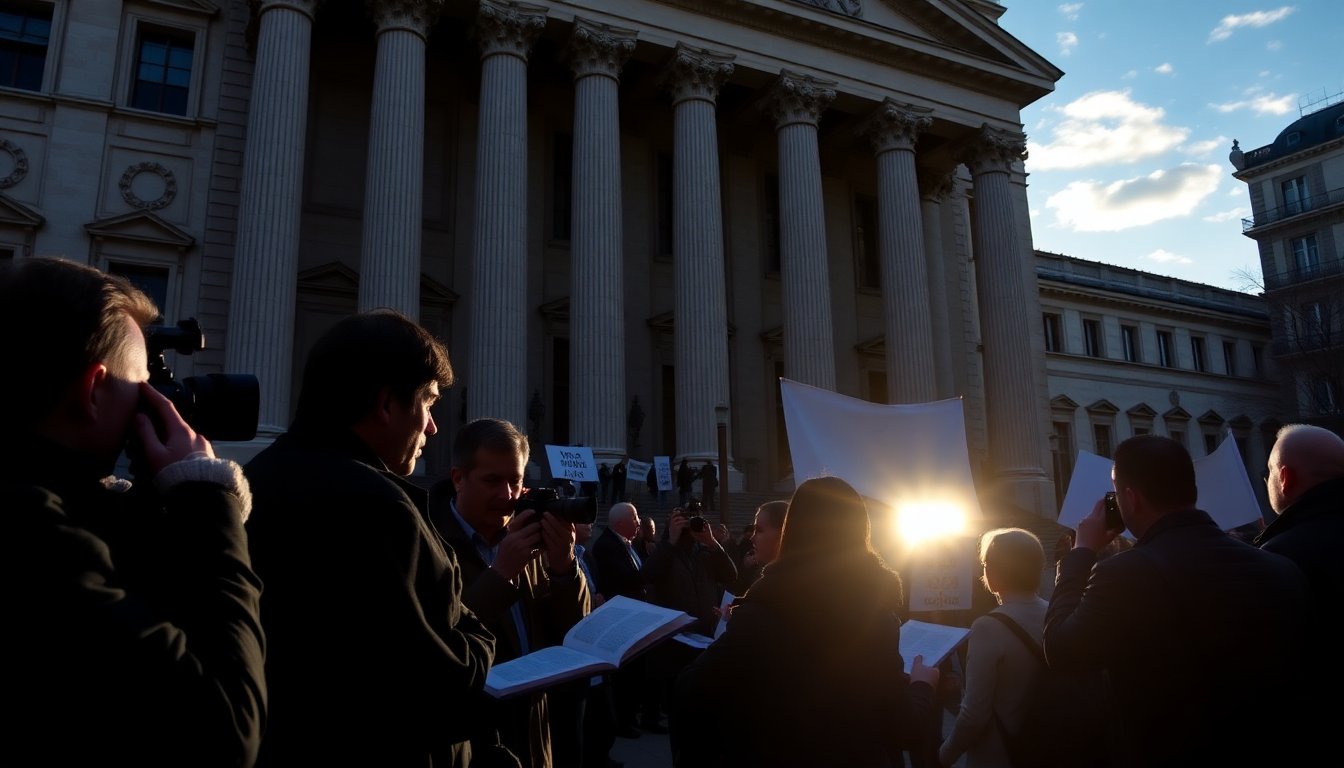Table of Contents
The political landscape in France has undergone a significant upheaval following the sentencing of former president Nicolas Sarkozy to five years in prison. This landmark ruling represents a pivotal moment in French political history, as Sarkozy is the first former president to be imprisoned due to allegations related to campaign financing. The conviction centers on his efforts to obtain financial support from the late Libyan leader Moammar Gaddafi during his successful presidential campaign in 2007.
A scandal rooted in political ambition
The saga began more than a decade ago, when Nicolas Sarkozy was in the race for the presidency. Allegations emerged that he received significant financial backing from Muammar Gaddafi. This partnership raised eyebrows due to Gaddafi’s infamous reputation as a dictator. The conspiracy charge that ultimately led to Sarkozy’s conviction involved not only the acceptance of funds but also the methods he allegedly employed to secure these financial resources.
Details of the conviction
A court ruling has confirmed that former President Nicolas Sarkozy pursued and accepted illicit funds intended to support his campaign efforts. The judges highlighted that this behavior undermines the integrity of the electoral process. By seeking financial support from a leader associated with an oppressive regime, Sarkozy’s actions raise significant ethical concerns regarding the lengths to which politicians may go to secure electoral victory.
Historical implications for French politics
This conviction establishes a new precedent in France, demonstrating that even the highest political offices are subject to legal scrutiny. The outcome indicates a shift toward increased accountability for politicians, particularly as public trust continues to decline. Sarkozy’s case serves as a stark reminder of the potential repercussions when the line between political ambition and ethical conduct becomes blurred.
Reactions from the political community
The sentencing of Nicolas Sarkozy has elicited a range of responses from the political community, revealing a deep divide among party lines. Supporters claim the ruling is politically motivated, while critics assert it is a vital move towards justice and accountability. This polarization underscores broader societal concerns regarding political corruption and ethical leadership, positioning Sarkozy’s case as a significant point of discussion in France’s governance landscape.
The path forward for Sarkozy
As Sarkozy prepares to serve his sentence, the ramifications of this verdict on both his political career and personal life continue to unfold. His conviction not only impacts his legacy but also raises crucial questions about the future of the Republican Party, which he once led. The party now faces the difficult task of distancing itself from the scandal while striving to retain its influence in the complex landscape of French politics.
The sentencing of Nicolas Sarkozy is expected to inspire further investigations into political financing in France. Lawmakers may feel compelled to reevaluate current regulations. This case could act as a catalyst for reform as the public increasingly demands transparency and integrity from their leaders.
The conviction of Sarkozy marks a pivotal moment in the relationship between politics and law in France. As the first former president to receive a prison sentence, he leaves behind a complex legacy that will remain in public discourse. This case serves as a cautionary tale for future leaders about the necessity of upholding ethical standards in political financing and the serious consequences of failing to do so.


